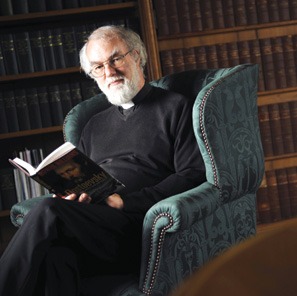
I was 14 years old when my Catholic mother took me aside in the adjunct to the back kitchen, rather grandly designated as “The Breakfast Room”, and warned me about the dangers of a “mixed marriage”. She drew on her own experience to flesh out its horrors. For although her Catholic parents had warned her about the consequences, she had gone ahead and married Dad: a man who not only lacked any sort of religious faith, but who was so committed to scientific rationalism that he took every opportunity to poor scorn on such religious axioms as the Virgin Birth and the Resurrection.
In her courting days, Mother had hoped that her partner’s atheism might be tempered by the courses in religious instruction that he was required to undertake in order for the Catholic Church to pronounce his intended marriage as in accord with its precepts. These requirements included “the instruction of the non-Catholic party in essentials of the Catholic faith” and a declaration that he would do “all in his power” to share my mother’s faith by having any children of the marriage “baptised and raised as Catholics”.
As a pupil at St Mary’s, a Christian Brothers school, it was assumed that I would find a suitable escort at Seafield Convent, an establishment run by Catholic nuns on the opposite side of the street. But although my first teenage romance did indeed involve a Seafield girl called Veronica (famous for wiping the face of Christ, as she bragged about one night) it was soon imperilled by her school uniform.
There was not a great deal of erotic material available to spotty youths at that time. In “dirty” magazines such as Parade and Lilliput, the entire vaginal area was obliterated and replaced by a large segment of blank pink skin. But even these de-labialised ladies seemed profoundly erotic when set alongside the ankle-length blue uniforms imposed upon the Seafield girls.
Life might have been simpler, if only the Catechism had not included “immoral thoughts” among the list of sins that were supposedly covered by the sixth commandment’s injunction against adultery.It was of course, perfectly possible to conjure up such thoughts: to allow oneself to revel in dreams of breasts and legs and underwear. But all too often, they also seemed to pop unbidden into consciousness.
Once, when I raised this thorny theological problem with my parish priest, I was told that I might avoid sin if I instantly dismissed such sinful imaginings by diverting my attention to “the sufferings of the martyrs”.
***
Iwould have been 15 when a large dose of reality finally released me from this maelstrom of imagining. She was called Julie. And unlike the saintly Veronica, she was a pupil at the non-religious Streatham House School. Not only was she a Protestant, a religion that good Catholic boys had been taught to regard as almost an admission of licentiousness, but her school uniform – red midi-skirt and loose cream blouse – seemed to have been assembled by a veritable expert in the art of temptation.
I took Julie home one Saturday afternoon and introduced her to my mother, who could barely conceal her alarm on discovering that she was a Streatham House girl. “I think we need a little talk,” she said, after Julie had left. I was sure I could anticipate her cautionary words. “I suppose you know that they can believe in anything they like and have no time for the Pope”; “It only takes a little drop of you-know-what to make a baby.”
And then, inevitably, there’d be the advice about the possible effect upon my soul of such a liaison. My weekly confessions had ensured that it was normally free from stain, but how might that unblemished state endure when it was exposed to the charms of a midi-skirted apostate? Supposing I died with a stain still on my soul? That meant an eternity in Hell.
To my surprise, none of these warnings were issued. It was as though my mother realised that something other than theology was now required to bring her fast-growing son firmly into line. Something more secular, more earthbound, more sanitary, was called for. “She seems like a very nice girl,” she began. “A very nice girl. But, Laurence, did you notice? Did you notice? She had a very dirty neck.”
This piece is from the New Humanist summer 2022 edition. Subscribe here.

